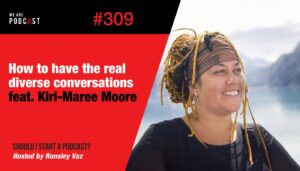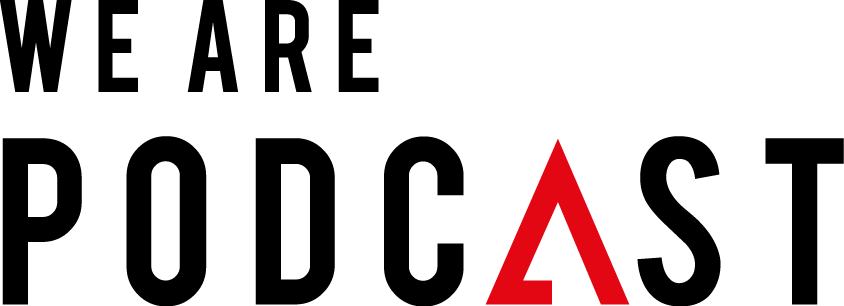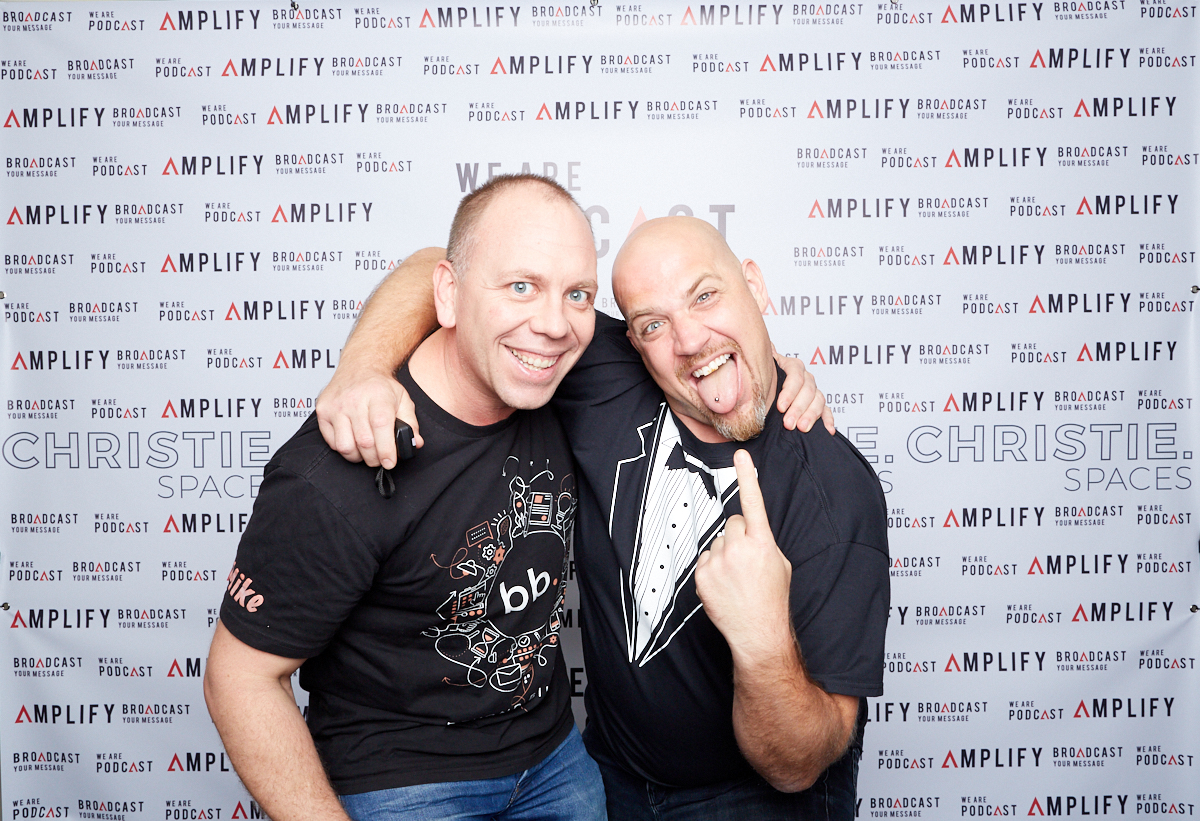Hey, It’s Ronsley…
I love podcasts. They’re such an easy way to learn about new things, but they can also be so boring. Most podcasts are created by people who just want to share their own perspectives with other people who agree with them. And while it might be nice to listen to another person talk about their point of view, it’s not very useful or interesting – and certainly not entertaining! One of the best ways you can improve your podcast is by making sure that you’re having diverse conversations (and not just talking with people who think like you do). So if you’re looking for ways to make sure that happens on your show, keep reading! But, if you want to listen, check out this episode with Kiri-Maree Moore about just this.
Be honest about the people you want to talk to, and why, then find a way to have those conversations – even if it’s awkward.
I’ve seen a podcast episode where someone asked their guest, “When did you decide to become a comedian?” And the guest responded, “I didn’t. It just happened.”
Then the host said, “But wait…I’m sure there were some moments when people told you that was funny.” There were none of those moments! And why would there be? That’s not how comedy works! The person who asks this type of question doesn’t realise how awkward it is to ask someone else about their career aspirations in such an open-ended way.
For example: You could say, “Tell me about a time in your journey to becoming a comedian, that made you a better comedian because of what happened” This lets them remember memories. Or you can ask, “When you look back at your journey what memory stands out for the most for you?” Open ended but will be made specific because of the response.
Have multiple guests on at the same time and listen for what they say when they’re not being asked questions directly.
I love to have multiple guests on at the same time. I find that it’s much more interesting than having one person talking, and if you’re able to keep track of what each person is saying, it can be a great way to get an idea of how they interact with others. When I’m recording these kinds of episodes, I tend to listen for when someone has a moment of silence and then ask them a question about what they just said (for example: “I think you said that ______” or “How does ______ affect your life?”). You could also ask them to tell you more about something specific that was mentioned earlier in the conversation or ask them to elaborate on something they said earlier in the conversation (for example: “Can you explain why you feel that way?”).
Find ways to bring in other perspectives from outside of your own culture or world view.
- Look for people who are different from you.
- Look for people who have different experiences.
- Look for people who have different skills, like programming or design.
- Look for people whose backgrounds aren’t the same as yours—different ethnicities, genders and sexual orientations, ages and so on. These differences might be more subtle than others, but they can still help to create a richer conversation!
Once you’ve put together your panel of diverse voices (and this isn’t an exhaustive list), it’s time to ask yourself: How do I make sure that everyone feels safe and respected during our recording session?
Do research on topics that you want to talk about and talk with people who are different from you.
The first thing you can do to begin having these conversations is to research topics that you want to talk about. You should also talk with people who are different from you. If your podcast is about business failure issues, for example, it’s important that you find ways in which other perspectives from outside of your own culture or world view will be brought into the discussion. This could be done by having multiple guests on at the same time and listening for what they say when they’re not being asked questions directly.
You could also invite people onto the show who aren’t necessarily experts—people who might have opinions based on personal experience rather than academic knowledge (like a friend-of-a-friend who’s lived through something similar).
Having the diverse conversations on your podcast will make it useful, create deep connections and let your podcast be the platform for having real conversations
Having the diverse conversations on your podcast will make it useful, create deep connections and let your podcast be the platform for having real conversations.
The first step to have the really diverse conversations is to choose a topic that people will want to talk about. Don’t just skim the surface or go with what’s trending in your opinion. Think of topics that are relevant and important but also very personal and intimate so only certain people can relate. The best example of this type of topic is something like mental health or sexuality because they are sensitive subjects which many people prefer not talking about openly with others around them in public spaces such as work or school.
If you want your podcast to be more than a one trick pony, it’s time to start having inclusive conversations with people who look different from you and come from different backgrounds. Diversity doesn’t just mean other races or ethnicities – it can also mean gender identity, sexual orientation, socioeconomic status, religious belief systems,… Once again we’re seeing how important this is for our broader society; if we don’t learn how to include each other in meaningful ways now then the we are not making full use of our platform.
In this article, I’m going to show you some ways to manage your podcast effectively. You’ll learn how to create a workflow that works for you, how to find your ideal voice and style, and how hosting on a good platform will help listeners find your podcast. Lastly, we’ll talk about some details that make all the difference in creating a great episode.

